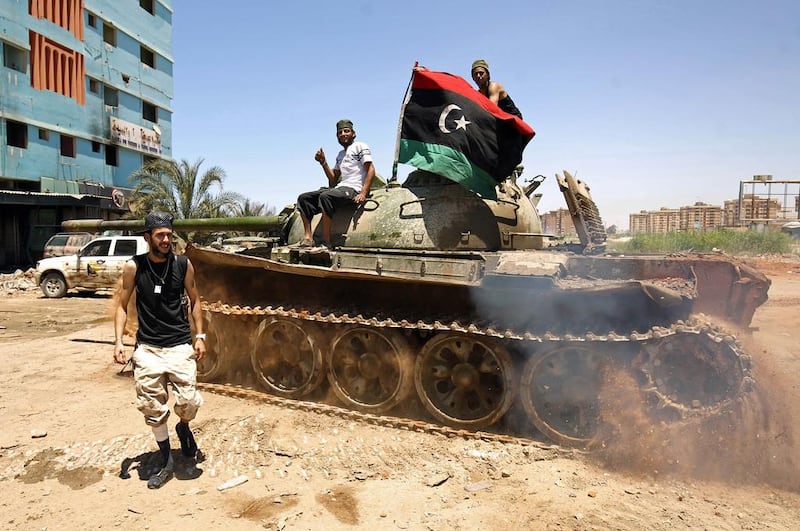Since the 2011 uprising that sent the country into a spiral of chaos, Libya has been, to all intents and purposes, a broken state. Extremist groups such as ISIL have filled the power vacuum as the country’s vital infrastructure has fallen into ruin and its ample oil resources have been looted. This dysfunction has ramifications far beyond Libya’s borders. Just look at the horrific terror attack in Manchester last week for evidence of that.
There have, of course, been regional attempts to restore stability in Libya. In Abu Dhabi this month, Fayez Al Sarraj the prime minister of Libya’s UN-backed government based in Tripoli, and Field Marshal Khalifa Haftar, the leader of the Libya National Army, met to discuss a potential political solution to the country’s instability. In the course of the talks, the two leaders agreed on the need to hold presidential and parliamentary elections next year.
Mr Haftar is one of the key figures in eastern Libya and his forces have proved extremely capable of rooting out militants and stemming the flow of migrants from the country. However, a major rift exists between Mr Haftar and the UN-backed Government of National Accord led by Mr Al Sarraj. Indeed, the spark of hope from the Abu Dhabi talks was short-lived as intense fighting quickly returned to the streets of Tripoli, perpetuating the years-long cycle of violence.
On the battlefield, there have, at least, been a few encouraging signs. This week, Al Qaeda offshoot Ansar Al Sharia announced it was going to disband after suffering major losses in its stronghold of Benghazi.
The Libya National Army under the direction of Mr Haftar has been fighting the group in the eastern Libya city since May 2014. While Ansar Al Sharia’s defeat is worth marking, there is still significant work to be done on the ground to combat extremism. For one thing, many members of the group defected to ISIL after it rose to prominence in 2014.
Libya is a stark example of how conflicts can bleed across border and how dysfunctional states become hives of terrorist activity. Extremist groups are a symptom of a broken state and not the cause. Libya will not return to stability without the help of the international community and especially regional partners. The world ignores Libya at its own peril.





